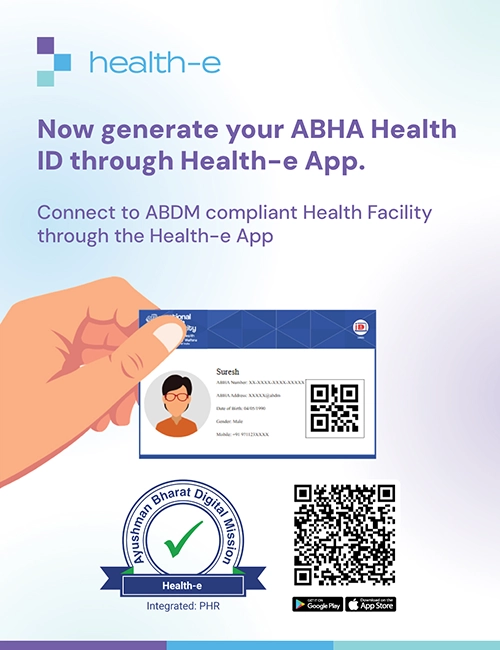Pregnancy is a special time in a woman’s life, where new life is growing inside her. Sometimes, certain traits or characteristics are passed down from parents to their children through genes. Therefore, doctors recommend several tests and scans during pregnancy to ensure that the baby is healthy and has no chromosomal defects.
One such test is the triple marker test, which helps detect any chromosomal abnormalities in the baby. This test is beneficial because it can help identify potential issues early on in pregnancy, allowing for timely medical intervention. Doctors may prescribe the triple marker test for various reasons and in this article, we will explore the purpose and benefits of this test.
What Is a Triple Marker Test?
The triple marker test is a prenatal screening test that is usually conducted in the second trimester between the 15th and 20th weeks of pregnancy. This test is recommended by doctors to detect any potential genetic abnormalities in the developing fetus. The test is also referred to as the triple test, multiple marker test, multiple marker screening, or AFP plus.
To conduct the test, blood samples are collected from the pregnant mother and analyzed for the levels of three substances – Alpha-fetoprotein (AFP), human chorionic gonadotropin (hCG), and estriol. These substances are produced by the fetus and placenta and enter the mother’s bloodstream. The levels of these substances can indicate whether the fetus has any genetic abnormalities.
The test is particularly useful in identifying chromosomal abnormalities in the fetus. Based on the results of the test, couples can make informed decisions about their pregnancy and take appropriate medical measures if necessary. However, you must note that the triple marker test is not conclusive, and further diagnostic tests may be required to confirm any abnormalities detected.
Is Triple Marker Test Mandatory?
The Triple Marker Test is recommended for all pregnant women, particularly those who have any of the following:
- A family history of genetic disorders.
- Are 35 years of age or older.
- Have taken prenatal medications/drugs that have side effects.
- Are diabetic and using insulin.
- Have experienced a pre-natal viral infection.
- Have had high radiation exposure.
What Are the Benefits of the Triple Marker Screen Test?
The triple marker screen test is a prenatal screening test that can provide various benefits for pregnant women:
- This test helps to detect congenital disabilities at an early stage, allowing parents to prepare for any health issues that may arise once the baby is born.
- It identifies the likelihood of severe health hazards for the unborn baby, including genetic disorders such as Down syndrome and neural tube defects.
- The triple marker screen test can also determine if a woman is expecting multiple babies, such as twins, triplets, or more. This information can be crucial for healthcare providers to plan for any necessary medical interventions during the pregnancy and delivery.
- The test can diagnose the possibilities of other pregnancy complications such as pre-eclampsia and preterm labour. By knowing about these complications in advance, doctors can take early preventative measures to manage them, leading to better health outcomes for both the mother and the baby.
Overall, the triple marker screen test is a valuable tool that can provide expectant parents with essential information about their baby’s health and development during pregnancy. This knowledge can help them make informed decisions about their pregnancy, prepare for any potential health issues, and ensure the best possible outcome for their baby’s birth.
What does Triple Marker Test Examine?
- Alpha-fetoprotein (AFP) :Alpha-fetoprotein (AFP) is a protein produced by the fetus that can be measured in the mother's blood during pregnancy. Elevated levels of AFP can indicate a neural tube defect or other congenital disabilities, while lower levels can be a sign of Down syndrome.
- Unconjugated Estriol: Unconjugated estriol is a hormone produced by both the fetus and the placenta during pregnancy. Low levels of estriol can be a sign of Down syndrome or other chromosomal abnormalities.
- Human Chorionic Gonadotropin (beta-hCG): Human chorionic gonadotropin (beta-hCG) is a hormone produced by the placenta during pregnancy. Abnormal levels of beta-hCG can indicate an increased risk of Down syndrome or other genetic disorders, as well as a higher likelihood of multiple pregnancies. In some cases, high levels of beta-hCG can also be a sign of a molar pregnancy or a potential risk of pregnancy complications.
What is Triple Marker Test Price?
The cost of a triple marker test can vary between 1200 INR to 4500 INR, depending on the hospital where it is performed. It is recommended to inquire about the cost with the hospital before scheduling the test.
What is the Procedure for Triple Marker Test?
The triple marker test involves a simple blood test where a sample of the mother’s blood is collected and sent for laboratory investigation. The results of the test are typically available within a few days.
Once the triple marker test report is generated, it is essential to analyze the results carefully to understand the significance of the findings. The report includes values for various markers that indicate the likelihood of certain conditions, such as and other chromosomal abnormalities.
It is important to note that a positive result from the triple marker test does not necessarily mean that the baby has a genetic disorder or birth defect. Rather, it indicates that further testing may be required to confirm or rule out a diagnosis.
If you have received a positive result from the triple marker test, it is important to consult with your healthcare provider to discuss the implications of the findings and any further steps that may be necessary. Your provider can help you understand the report and its implications and guide you through the next steps in your care.
What is the Normal Value Range of the Triple Marker Test?
The levels of triple screen markers in pregnant women differ greatly, as demonstrated by the average ranges of AFP (1.38 to 187.00 IU/ml), hCGβ (1.06 to 315 ng/ml), and uE3 (0.25 to 28.5 nmol/l).
How do You Read Triple Marker Results?
The triple marker test is easy to read. A positive result indicates an increased likelihood of your baby having congenital disabilities. Conversely, a negative result indicates that your baby is healthy and at low risk of developing congenital disabilities.
What is the Difference Between Double Marker and Triple Marker Test?
Double marker test and triple marker test are prenatal screening tests used to detect the risk of certain genetic disorders in a developing fetus. Here are the differences between the two tests:
- Number of Hormones:The double marker test examines two hormones, while the triple marker test examines three hormones.
- Timing:The double marker test is typically done between 10-14 weeks of pregnancy, while the triple marker test is done between 15-20 weeks.
- Conditions Detected:The double marker test screens for Down syndrome and Trisomy 18, while the triple marker test screens for these two conditions as well as neural tube defects such as spina bifida.
- Accuracy:The triple marker test is considered to be more accurate than the double marker test, but a positive result from either test does not necessarily mean that the fetus has the condition being screened for. Further testing such as amniocentesis may be needed for a definitive diagnosis.
Final Thoughts
The triple marker test is an important tool for detecting chromosomal abnormalities in pregnant women. However, it is important to remember that this test can be expensive, so it’s essential to check with health insurance providers or local clinics to compare costs and find the best option for you. In addition to this, as an expectant mother, it is also important to keep track of all pregnancy-related documents and information. Consider using an online platform like Health-e to securely store and organize your important documents for easy access and peace of mind.





